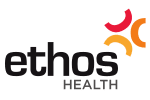Multivitamins are Big Business
There’s multivitamins out there for every age and gender, some even have added herbs and other bonus ingredients, but do you really need one? New research suggests you that taking a multivitamin may do more harm than good.
There is no doubt that our body needs nutrients to function, but the nutrients in supplements don’t appear to do the same thing as the nutrients in food.
New research published in the Annals of Internal Medicine confirms that consumption of certain vitamins or minerals can be dangerous.
Evidence involving tens of thousands of people randomly assigned in many clinical trials shows that carotene, vitamin E, and possibly high doses of vitamin A supplements increase mortality. Multivitamin use is associated with an increased risk of breast cancer and that other antioxidants, folic acid and B vitamins and multivitamin supplements have no clear benefit.
Real food has several big advantages over supplements
Unlike multivitamins, whole foods contain a number of substances that help vitamins and minerals be absorbed by the body and do their job inside cells. Additional components, such as fibre and polyphenols, can help protect against conditions such as cancer, diabetes and heart disease. Whole foods often contain vitamins and minerals in different forms, all of which range in their ability to be absorbed by the body (known as their bioavailability). Vitamin E occurs in nature in eight different forms, for example, but supplements usually contain just one.
Learn More: Do I need vitamins and supplements to be healthy?
Most people can fulfil their vitamin and mineral requirements by eating a healthy, balanced diet. However, there are a few groups that may need a supplement.
- Pregnant women and those trying to conceive (one month prior to conception and three months after): Folate
- People on a strict vegan diet and the frail aged who may be eating poorly and/or absorbing less from their food: Vitamin B12
- People on restrictive diets (including those with eating disorders, food allergies or intolerances): the type of supplement depends on the nature of the diet
If you’re unsure whether your diet is currently providing you with the right amount of nutrients contact us here to consult an Accredited Practising Dietitian for advice, or book an online appointment. At Ethos Health we can easily assess your diet and provide a practical plan to address any issues.






